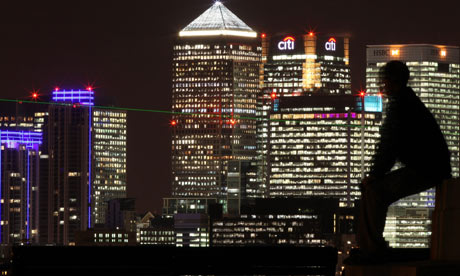
In 2006, Sukhdev Sandhu was commissioned by Artangel to spend a few months recording his impressions of the London night. The result is this unconventional, poetic and – yes – haunting meditation on the capital's hours of darkness and the largely unregarded men and women who wakefully inhabit it.
Each chapter focuses on a different tribe of urban night-dwellers. Sandhu travels up in a helicopter with the "avian police", the special unit whose job it is to track criminals from the skies. He spends a night in a Soho Samaritans office with volunteers on the 3am to 8am shift. He visits a sleep clinic, where he monitors technicians monitoring patients rigged up with wires and nodes, hoping to discover a cure for their insomnia. He finishes up at the Tyburn convent on Bayswater Road, where the nuns are required to awake each night in darkness and pray for the souls of Londoners.
Immigrants make up a large proportion of London's nocturnal labour force and Sandhu has chapters on the (largely African) cleaners who spruce up the city's offices and the minicab drivers from "Afghanistan, Pakistan and Ghana" who ferry revellers home after nights on the town. A not unreasonable tone of outrage enters proceedings here. Of the cleaners, Sandhu points out: "Late-working office staff do not look at them… in shared lifts, they stare at their feet or suddenly feel an urge to start BlackBerrying their colleagues." Minicab drivers, he notes, are regularly depicted as rapists in government poster campaigns and have endlessly to mop up sick from their cars.
Elsewhere, Sandhu writes movingly about two of London's oldest night-time professions: the "dying tribe" of Thames bargers and the flushers whose job it is to maintain the city's sewers.
Throughout, Sandhu is alive to the magic and mystery of the London night, qualities too often sacrificed to the modern tendency to equate "night" with "nightlife". Night, he argues, is now no longer a realm of enchantment, but a zone of tawdry entertainment, where opportunities for profit-making can be ruthlessly extended.
Night Haunts represents a rearguard action against this tendency. It is a work of salvage, an attempt to claw back the darkness from the dozy, indifferent hordes. While it may not make you want to spring out of bed and spend your nights hunting urban foxes or daubing graffiti on walls (the subjects of two other chapters), it acts as a reminder that there are people who do such things and that we would do well to bear them in mind.

